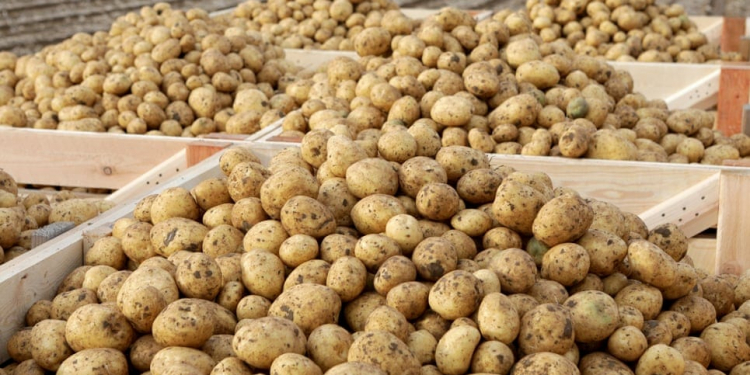Scottish potato farmers have said that uncertainty surrounding their ability to sell to Northern Ireland post-Brexit is causing millions of pounds in losses, prompting Scotland’s environment minister to accuse the government of treating the industry as “expendable” in trade talks.
While fisheries in Scotland have been treated as a priority in Brexit talks, Scottish seed potato farmers – one of the biggest exporters for the production of chips and crisps in the world – have been told they will be unlikely to be able to export to Northern Ireland from 1 January as things stand.
Seed potatoes are potatoes from which others are grown but with strict EU-wide health checks for blight, pest and other diseases before being sold commercially. The Scottish industry accounts for 75% of UK production and is worth more than £200m a year, six times the value of the recently signed fisheries deal with Norway but dwarfed by the £1.4bn overall UK fishing trade.
Mairi Gougeon has written to Lord Gardiner of Kimble, the parliamentary under secretary of state for rural affairs, to say Scottish potato farmers, many of them running family businesses, have been put under “incredible strain”.
At the centre of the issue is Northern Ireland’s special place after Brexit, following EU customs rules on food and animals coming in from Britain whether there is a trade deal or not.
But Gougeon complained that while the UK was offering the EU a six-month transition period to allow European seeds and plants to be sold in Britain, “the reciprocal arrangement is not available to us”. This leaves EU markets and Northern Ireland closed to Scotland’s producers.
“I must request again that you urgently contact the EU to press for an early resolution of the UK equivalence applications,” she wrote in a letter seen by the Guardian, adding that the industry faced an initial £15m financial loss “as a result of not having access to the EU or NI”.
fficials at Defra have said they are waiting for the EU to recognise equivalence but farmers say they can’t run a business on such uncertainty with just 59 days to go before the end of the UK’s transition period.
Iain Barbour, who runs the decades-old JBA Seed Potatoes in Dumfries with his father, said the situation was making people’s lives “miserable”.
“If there was a huge disaster and the Northern Ireland potato crop failed, we would not be allowed to send in seed potatoes to help them. Even Asda and Tescos, they wouldn’t be allowed to have eating potatoes from us,” he said.
Scottish seed potatoes are considered a global gold standard because they are less prone to diseases because of the climate, which puts them at a higher standard than EU regulations, he said.
With the first seed potatoes planted around 17 March for early harvests at the end of May, “customers in Northern Ireland are rushing to stock up,” said Barbour in case the Scottish spud is banned from 1 January.
Boris Johnson claimed the EU were threatening to “blockade” food supplies to Northern Ireland last month, taking the issue to an explosive political level. Seed suppliers are now fearing they will be collateral damage.
“I’m actually really annoyed about it. We’ve seen a 6,000% increase in demand from some of our customers who are stockpiling,” said Paulo Arrigo, who runs Italian vegetable seed supplier Franchi in Harrow.
“Do you know what Defra’s advice was? Tell everyone in Northern Ireland to get their stocks in before Christmas,” said Arrigo.
A Defra spokesman said it understood the importance of seed and other propagating material exports for UK horticultural businesses, and remained committed to securing market access beyond the end of the transition period.
“We have already formally submitted the equivalence application, on behalf of the UK, to the European commission – and await their response,” he said.







